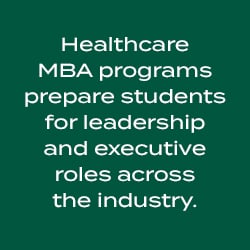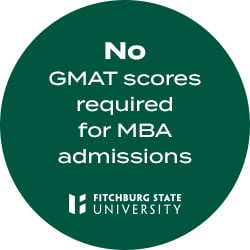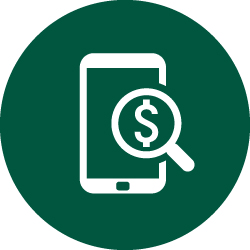Home / Degrees / Business / MBA / Master of Business Administration in Healthcare Management / Earning Your MBA in Healthcare Management Online FAQ
FAQ: Earning Your MBA in Healthcare Management Online

Professionals with an MBA in Healthcare Management understand how to meet the medical industry’s diverse business challenges and identify opportunities for innovation. Earning an MBA can also help physicians, nurses and healthcare administrators gain new leadership skills, or advance to the C-suite in their organization. MBA graduates are prepared for management roles in other areas of science and patient care, including the insurance, pharmaceutical and biotechnology industries.
Many MBAs are leading transformational change, from new diagnostic technologies and care delivery systems to streamlined clinical and operational processes. They have the knowledge required to adapt to value-based care models that prioritize treatment outcomes and patient satisfaction, and to address staff shortages, supply chain issues and other obstacles impacting quality or efficiency.
As hospitals, healthcare systems, individual providers and companies navigate an increasingly complex medical landscape, they need MBAs that can lead the way and develop new business models for achieving organizational and financial success.
Whether you’re seeking your first leadership position, transitioning to the executive ranks or starting a business, an online MBA program in healthcare management could be a great fit. Online courses are available 24/7, with flexible study options for busy professionals. Follow the links below to learn more.
What is a Master of Business Administration in Healthcare Management Degree?

An MBA in Healthcare Management prepares graduates for high-growth leadership roles in a variety of medical settings. MBA students develop expertise in accounting, finance, marketing and data-driven decision-making, as well as specialized knowledge of organizational behavior.
Earning an MBA focused on healthcare administration can also help you get up to speed on emerging industry standards, from new payment models to the next big breakthroughs in technology. Students can gain insight on the legal, ethical and regulatory issues that influence business decisions in the industry.
Fitchburg State University’s online MBA in Healthcare Management program is designed for students who want to add advanced business skills to their current healthcare expertise, or pursue a new leadership career in this exciting field. The program features accelerated courses delivered 100% online and tailored to the needs of clinicians, administrators and other busy professionals.
Will I Have to Take the GMAT to Apply to Healthcare MBA Programs?

Some MBA programs do require the Graduate Management Admission Test (GMAT) because it measures critical thinking, analysis and problem-solving, which are keys to success in graduate school. Many online MBA programs take a more holistic approach to admissions decisions however, giving an applicant’s academic, work and life experience more weight in their evaluation.
Be sure to check the admission requirements for healthcare MBA programs you’re considering before you apply.
Fitchburg State’s online MBA in Healthcare Management program does not require the GMAT or other test scores for admission.
How Does an MBA Benefit Physicians?

An MBA in healthcare management gives physicians the core business knowledge required for many hospital and healthcare system leadership positions, and may offer a competitive edge in advancing to the C-suite. The degree can also help you improve your private practice, start a medical business or take on a financial oversight role as a corporate or nonprofit board member.
MBA coursework can help new physicians develop the advanced management skills that practitioners must often learn through trial and error, and over years of practice. While some medical schools now include business courses in their curriculum, many graduates are still starting their career without this education.
In the Merritt Hawkins 2021 Survey of Final-Year Medical Residents, 57% reported that they received no formal business training in areas such as employment contracts, compensation arrangements or reimbursement methods, and 32% said they were unprepared to handle the business of medicine.
These are just a few of the reasons that physicians at all stages of clinical practice can benefit from earning an MBA and expanding their perspective on the business conditions that shape healthcare delivery.
Why Should Nurses Consider an MBA?

Many RNs are now earning their MBA, and the degree is a great fit for emerging leaders. It’s also beneficial for experienced nursing managers ready to advance to an executive position.
Becker’s Hospital Review reports that the ongoing nursing shortage continues to drive changes in the way healthcare employers do business, resulting in a greater need for nurse executives. RNs make up only 15% of hospital CEOs, BHR notes, despite the fact that their leadership can give employers a competitive advantage in RN recruiting and retention. CEOs with a nursing background also bring a different strategic perspective to hospital care and operations, one that can create positive change from the bedside to the boardroom.
MBA nurses at all levels are well-positioned to help institutions improve staff performance and evidence-based care while also addressing costs, logistics and patient satisfaction. Earning an MBA gives nurses more employment options too, and a highly marketable skill set for careers in healthcare consulting, sales or technology.

Spotlight: Healthcare Entrepreneurship for MBAs
Entrepreneurs have emerged as key players in the future of medicine, and an MBA provides advanced business skills that can complement their spirit of innovation. An MBA can also help inventors and founders enter the healthcare marketplace in a stronger position to succeed.
MBA graduates who understand clinical and administrative issues in healthcare have the knowledge required to bring new ideas to market, whether they are developing products or supporting the manufacturing and delivery process. MBAs can also create healthcare consulting or service firms. Marketing, sales, compliance, procurement, customer service and management are just a few options.
Healthcare entrepreneurship can even change lives. Consulting firm McKinsey & Company reports that growth in biotech and medtech startups continues to result in new breakthroughs, expanding the boundaries of care delivery. The National Academy of Medicine highlights opportunity growth in other next-generation technologies in The Promise of Digital Health: Then, Now and the Future (2022). They include:
- Digital health tools for genetic sequencing, risk scoring and diagnosis
- Medical AI for radiology, pathology and individualized treatment plans
- Video technology for telemedicine
- EHR platforms for health information exchange
- Mobile apps for health screening and self-care
- Wearables for medication and wellness monitoring
Fortune Business Insights also projects that revenue in the medical device market will rise 45% from 2022 to 2029. MBA healthcare entrepreneurs will continue to play an important role in its evolution.
What Courses Will I Take for an Online MBA in Healthcare Management?
MBA programs commonly require core coursework in finance, management, marketing and analytics. Specialized topics that focus on industry specific needs, such as legal aspects of medicine or technology applications, are also part of a healthcare MBA. Some programs require additional foundational courses like statistics and economics for applicants who hold non-business degrees.
Students in Fitchburg State University’s online MBA in Healthcare Management program complete 10 courses to earn the degree.
- Accounting Practices for Managers
- Corporate Finance
- Healthcare Management
- Healthcare Marketing
- Financial Issues in Healthcare
- Organizational Behavior and Development
- Policy, Legal and Ethical Issues
- Management Information Systems
- Marketing Management
- Strategic Management*
*MBA capstone course

Nowadays, it is easy to advance your career with online classes. The professors teaching the classes do not require you to log on at a specific time. Do your work as assigned by the deadline and get in touch with your professors anytime with questions.
– Madeleine Bossou, graduate, Fitchburg State University online MBA in Healthcare Management program
What Is an MBA Capstone Course?

In most MBA programs, students complete a capstone course at the end of their studies to review what they’ve learned and demonstrate mastery of MBA concepts. Depending on your program’s requirements, you may take a qualifying exam, write a final summary or research paper, examine case studies or do a final project.
The capstone experience is also valuable because it helps students refine core and specialized business skills they can use to achieve career goals after graduation.
What Are the Admission Requirements for MBA Healthcare Management Programs?

Most MBA programs focused on healthcare administration require a bachelor’s degree, a specific undergraduate grade point average and official transcripts documenting previous coursework. Many have a work experience requirement, and you may need to submit a resume, GMAT or GRE scores, professional references or an essay as part of your application.
Fitchburg State’s online MBA in Healthcare Management program has a streamlined admission process. Just submit your application online and provide the following information and documents for evaluation:
- Bachelor’s degree from a regionally accredited institution
- Official transcripts of all previous undergraduate and graduate coursework
- Undergraduate GPA (2.8 minimum)
- Professional resume
Fitchburg State may also consider applicants who don’t yet meet the minimum GPA requirement, based on their professional work experience and a letter of recommendation. Visit the program page to learn more about admission to the dual-concentration degree option as well.
How Soon Can I Start an Online MBA Program? What’s the Deadline for MBA Applications?

It depends on your university and the MBA experience it offers. Online MBA programs, however, are the most flexible.
Traditional MBA programs on campus accept applications once or twice a year, but online programs often have multiple deadlines that run year-round. Because there are more start dates for new applicants, students in online MBA programs can sometimes begin courses within weeks of admission. That’s a great perk if you’re hoping to earn your degree as soon as possible.
Fitchburg State’s online MBA in Healthcare Management offers six start dates per year, and you can apply anytime.
Will My Military Experience Count as Work Experience for MBA Admissions?

MBA admissions officers know that many veterans, reservists and active-duty servicemembers have work experience that offers great preparation for graduate study in business. MBA applicants who have held a management position in their branch of the service tend to have personnel and problem-solving skills equivalent to their peers in civilian leadership roles.
The resume you submit with your MBA application should highlight supervisory positions you’ve held along with any job that involved a high level of responsibility, decision-making or problem-solving. This will help you stand out as a prospective MBA student.
Can I Get College Credit for My Military Experience?

Each university has its own policies, but it may be possible to receive some course credit for your military experience and job duties. Transfer credit of this type is often based on your Joint Services Transcript (JST).
Applicants to Fitchburg State University may request a review of their military training and work experience for potential academic course credit, in accordance with the VALOR Act. Submit your JST with a request for transfer credit evaluation as part of your online MBA application.
Can I Use Military Education Benefits to Pay for My Online MBA?
Yes. You can use your military education benefits to pay for an online MBA or transfer your benefits to your spouse or children if they are earning the degree online. Just remember that graduate students must be enrolled in an accredited degree program or institution to qualify.
Visit the U.S. Department of Veteran Affairs to learn more about the GI Bill and other education benefits that may be available.

Can I Get Help Certifying My Military Education Benefits?
Yes. Most colleges and universities offer assistance with the benefit certification process and may have other services for military personnel.
Fitchburg State University is a military friendly institution that provides a comprehensive array of support for servicemembers and their families. You can get help with the application and certification process for education benefits, and resources such as mentoring, tutoring and career counseling. Visit Veteran Services to learn more.
What Is Accreditation?
Accreditation is an external review process that ensures higher education institutions meet the right academic and professional quality standards. Accreditation also recognizes excellence in education, as well as graduation rates and relevant career preparation.
Fitchburg State University is accredited by the New England Commission of Higher Education (NECHE) and its MBA programs are accredited by the International Accreditation Council for Business Education (IACBE).
Why Is MBA Accreditation Important?

Students in accredited MBA programs can have confidence that curriculum, teaching methods and professor qualifications meet current professional standards for business education.
Accreditation is also important because it gives you access to federal student assistance programs such as financial aid and loan consolidation.
Most employers also require enrollment in an accredited MBA program or institution for tuition reimbursement.
What’s the Career Outlook for MBA in Healthcare Management Graduates?

The Graduate Management Admissions Council’s 2022 Corporate Recruiters Survey confirms that employer demand for MBAs remains strong. Approximately 95% of staffing firms and 92% of individual recruiters surveyed plan to hire graduating MBAs, and 74% agreed that business school graduates also have a fast track to upper management.
In addition, September 2022 employment projections from the U.S. Bureau of Labor and Statistics (BLS) indicate robust demand for medical and health service managers. BLS expects 32% job growth in this occupational category through 2030.
As AI and other health technologies play a larger role in all aspects of medicine, requirements for healthcare administration jobs are evolving too. The Phillips Future Health Index Report notes that despite the importance of predictive analytics, many healthcare leaders still view data as “more of a burden than an asset.” This obstacle to innovation is creating fresh opportunity for MBAs skilled in data-based decision-making, who are valued for their ability to resolve clinical, personnel and operations issues.
Spotlight: MBA Skills Improve Healthcare Supply Chain Management

Supply chain disruption is an ongoing challenge for U.S. hospitals, healthcare systems, health service providers and medical businesses. Nonprofit advocacy organization ERCI also ranked the issue among its top patent safety concerns and risks to healthcare organizations in 2022.
Forbes reports that critical shortages range from routine items such as bandages and needles to defibrillators, IV and dialysis products, surgical tape and more. Healthcare logistics firm Owens & Minor notes that 45% of the inventory it handles is “supply-constrained” in some manner and that many hospitals are dealing with up to 1,000 backorders per day. Limited availability of anesthesia and pain medications, antibiotics and chemotherapy agents also continues, according to Forbes.
When this happens, many nurses and physicians are now pressed into service to help locate alternatives for items that don’t show up, or find new vendors for vital supplies. These crisis-fueled collaborations with administrators offer valuable lessons in how medical personnel can work together to solve business problems. The situation is also driving demand for healthcare supply chain consultants that can help organizations stabilize the flow of resources necessary for patient care and business operations.
MBA graduates with expertise in healthcare management have the advanced strategic, planning and budgeting skills to address supply chain disruptions and find lasting solutions. MBAs are adept at helping organizations project supply needs, analyze costs, build reliable vendor networks, negotiate contracts, navigate product or price fluctuations and innovate — all while protecting the bottom line.
How Much Can Healthcare Managers and Consultants Earn With an MBA?

Your earning potential with a healthcare MBA is wide open, whether you are ready for your first promotion to management or exploring new career pathways in leadership. In addition to hospitals and healthcare systems, excellent opportunities are available in outpatient care, rehabilitation and long-term care, clinical laboratories and research facilities. Companies that work with providers and their patients also value MBAs, and regularly hire healthcare professionals who are changing careers.
Here are a few examples of great-paying healthcare management and consulting jobs for MBAs.
| Position | Average Annual Salary |
|---|---|
| Electronic Health Records Consultant | $111,037 |
| Medicare Compliance Officer | $108,928 |
| Healthcare Analytics Manager | $107,981 |
| Endoscopy Nurse Manager | $102,254 |
| Clinical Research Manager | $98,956 |
| Medical Device Sales Manager | $96,428 |
| Corporate Nurse Consultant | $95,511 |
| Health Policy Consultant | $90,199 |
Source: ZipRecruiter, September 2022
What Do Healthcare Executives Earn?
It’s no secret that many healthcare executives command top salaries, due to the dynamic knowledge and experience they bring to the industry. The following table highlights a few examples of high-paying administrative positions MBA graduates can pursue on the healthcare executive career ladder.
| Position | Average Annual Salary |
|---|---|
| Vice President of Health Informatics | $152,329 |
| Chief Nursing Officer | $146,958 |
| Chief Clinical Officer | $143,472 |
| Vice President of Behavioral Health | $129,404 |
| Emergency Department Director | $114,049 |
| Director of Surgical Services | $105,625 |
| Hospital Supply Chain Director | $99,560 |
| Director of Hospice Operations | $97,234 |
Source: ZipRecruiter, September 2022
A recent report from Modern Healthcare notes that pay for many executives is also rising, based on 2021 salary trends for a number of key positions. Median total cash compensation in healthcare systems improved the most for chief technology officers (11.4%) and chief operating officers (10.7%). Department-level leadership also saw excellent salary gains in clinical integration/transformation (8.5%) and professional services (8.2%).
Hospital executive pay increased significantly in foundation and fund development (11.1%) as well as operations (7.3%). Many executives also earn incentives tied to meeting annual goals and improving the overall performance of their organization.
How Much Do Healthcare MBA Salaries Vary by State or Region?
Pay rates, signing bonuses and perks can vary quite a bit by location, based on the current job market and competition for top talent. For example, the healthcare executive salaries below highlight what you might earn in two different areas of the east coast.
| Position | Average Annual Salary | |
|---|---|---|
| New Jersey | Florida | |
| Chief Medical Information Officer | $155,622 | $131,266 |
| Vice President of Telehealth | $135,583 | $113,019 |
| Critical Access Hospital CEO | $123,080 | $103,787 |
Source: ZipRecruiter, September 2022
The following business roles for healthcare MBAs also illustrate the salary range you may see for similar positions in the same region.
| Position | Average Annual Salary | ||
|---|---|---|---|
| New York | Massachusetts | Connecticut | |
| Healthcare Strategy Consultant | $120,499 | $104,354 | $100,633 |
| Clinical Transformation Consultant | $117,731 | $109,197 | $103,506 |
| Pharmaceutical Sales Representative | $105,780 | $90,600 | $87,618 |
Source: ZipRecruiter, September 2022
If you plan to relocate for a new opportunity, be sure to consider the local cost of living when weighing job offers.
Learn more about Fitchburg State University’s online MBA in Healthcare Management program.
How Much Does an Online MBA in Healthcare Management Cost?

Calculating the cost of an MBA is not always easy, whether you study on campus or online. Some programs bundle tuition and fees while others do not. Credit hour requirements can vary, and at some schools, out-of-state residents pay extra when studying online. Here are a few examples from the New England region that illustrate typical online healthcare MBA costs and considerations.
At a private university in Connecticut, online students pay $1,048 per credit in tuition and fees for an MBA program that requires 33 hours to complete. This means they’ll spend more than $35,000 for the degree. At one of the largest public universities in Massachusetts, online MBA students pay $925 per credit hour before fees. But since they must complete 37-39 credit hours, the final degree cost is roughly equivalent to the private school.
The same university system in Massachusetts charges $695 per credit for its global online MBA program, but for some students that isn’t the savings it seems. Those who don’t qualify for course waivers must complete 48 credit hours to earn the degree. They will end up paying more than $33,000 in tuition alone.
As these examples demonstrate, it’s important to understand the true cost of your healthcare administration MBA. With a little research, you can find the right fit for your needs and budget.
All students in Fitchburg State University’s online MBA in Healthcare Management program pay the same tuition rate of $436 per credit hour. The total cost of the 30-hour degree is $13,080, fees included.

To family, friends and others who are struggling to start, go to Fitchburg for a quick admission and low-tuition graduate education. Your dream can come true any time in your life.
– Madeleine Bossou, graduate, Fitchburg State University online MBA in Healthcare Management program
Is an MBA Worth the Cost?
Reports from GMAC and other organizations indicate that most graduates are satisfied with their decision to pursue an MBA. More than 90% of alumni surveyed for The Value of Graduate Management Education: From the Candidate’s Perspective (2022) gave their degree a favorable rating for value. More than two-thirds cited the financial outcomes and opportunities an advanced business education makes possible in their positive assessment of the experience, as noted below.
How Fast Will I See a Return on Investment With a Healthcare MBA?

Your potential return on investment (ROI) depends on several factors, including your previous management experience, career trajectory and the healthcare roles you’re interested in. However, business school news site MBA.com has reported that it takes fewer than four years for many MBA graduates to recoup their investment in the degree. With an affordable and accelerated online MBA program you may be able to achieve ROI faster, since many students finish courses and graduate in less time than a traditional MBA requires.
Can Online MBA Students Get Financial Aid or Tuition Reimbursement?

Yes. Online students enrolled in an accredited MBA program can apply for federal financial aid programs administered by the U.S. Department of Education. Be sure to fill out the Free Application for Federal Student Aid (FAFSA) by your university’s deadline.
Employers that cover the cost of a traditional MBA degree through their tuition assistance program usually do so for students earning their MBA online. Just make sure you enroll in an accredited school or program, since that’s a common requirement.
Can I Write Off My MBA Tuition and Fees at Tax Time?
Many graduate students are able to take advantage of the federal Lifetime Learning Credit for taxpayers. Income qualifications and other restrictions apply. Check out the IRS Tax Benefits for Education Center to learn more.
How Long Does it Take to Earn an MBA Online?

Most traditional MBA programs take two years of full-time study to complete, or three years if you’re enrolled part-time. Online MBA programs can often be completed more quickly since many feature accelerated classes that are offered year-round. Continuous enrollment is not required in most online MBA programs however, so you also have the option to earn your degree at your own speed.
Motivated students can complete Fitchburg State University’s online MBA in Healthcare Management program in as few as 12 months, taking two courses per term.
Can I Earn an Online MBA in Healthcare Management and Work Full-Time?

Absolutely. Thousands of physicians, nurses and other professionals do so every year. In fact, online courses are a great choice if you’re in the healthcare industry, since your work schedule may be different than the standard eight-to-five business day.
Whether your lunch break is at noon or midnight, you can do some reading, watch lectures online or post to a discussion thread whenever it’s most convenient. Medical professionals serving in the military often appreciate the flexibility of online classes since it’s possible to learn wherever you are, and pause your studies during deployment when needed.
Whatever your job in healthcare or another profession demands, an online MBA program can help you earn the degree on your schedule without sacrificing your career.

As a clinical lead you know the start of your shift, but you never know when you will be ending your shift. Even with that challenge, I still can get my schoolwork done. Sometimes, I get home, pick up the kids from their different activities, cook dinner and still fit my schoolwork in my schedule.
– Madeleine Bossou, graduate, Fitchburg State University online MBA in Healthcare Management program
How Do Online MBA Courses Work?

Online MBA classes are comparable to MBA classes on campus, offering the same course content and academic rigor. But instead of meeting in a classroom, you’ll simply sign in to a learning management system (LMS) such as Blackboard, where you’ll find your courses. Your professor’s instructions and syllabus will be there, along with recorded lectures on video, your schedule and assignments, and even your grades.
You can work in your course 24/7 and assignments are usually due once a week. Learning modules in online courses are also designed to help you master content faster, and this immersive approach to learning helps many MBA students graduate sooner.
Will I Meet or Collaborate With Other Students in My Online MBA Program?
Yes! Most MBA students will collaborate with peers on projects and assignments, and many even study together online. Discussion boards and live video chats make it easy to explore ideas and share different viewpoints. Working with MBA classmates can also help you strengthen marketable soft skills such as teamwork, communication and problem-solving, and help expand your professional networks.
Do Online MBA Professors Have Real-World Business Experience?
Yes. Most online MBA professors have extensive management and leadership experience in business, in addition to a master’s or doctoral degree. It is also common for online professors to be active in their field or industry while teaching, bringing real-time, real-world examples and case studies to their work with MBA students.
Be active, ask questions and stay engaged. This is your experience. You are a student but also a consumer of content. Make sure to get as much out of it as you can!
– Dr. Michael Leamy, MBA in Management online instructor at Fitchburg State University

Are Professors in Online MBA Programs Available to Students?

Yes. Professors in online MBA programs engage with their students in a number of ways. They communicate with the class during discussion board conversations, and with individual students in chat, email and one-to-one video conferences. Professors are also available to discuss your progress and answer questions about assignments or grades.
MBA professors often act as mentors for graduate students, helping guide them through projects and explore career options. Connect with your instructors throughout your online MBA studies to learn everything you can from their experience.
Do I Have the Right Technology for Online Courses?

Many students find they already have the technology and tools required to study online. You’ll need access to a desktop or laptop computer, or a tablet that can perform the same tasks. Make sure you have a webcam and microphone as well.
In addition, your computer or device should have:
- High speed internet access
- Audio and video streaming capability
- Software for writing papers and creating spreadsheets
- Adequate storage space for large files, or cloud storage
Check with your MBA program for its technology guidelines too, before classes begin.
What Student Services Are Available to Online MBA Students?
Online MBA students have access to most of the same services that on-campus students do. You can usually get tech support, work with librarians or tutors and access other types of resources that graduate students need to succeed.
Online student services at Fitchburg State include tech support, career services, counseling, writing center assistance and digital access to the Amelia V. Gallucci-Cirio Library.
Can I Walk at Graduation If I Study Online?

Most universities invite online students to participate in graduation. The ceremony is a great opportunity to meet your professors and classmates in person and celebrate the accomplishment of earning an MBA with family and friends. It is also a great time to strengthen the professional connections you’ve made in your program.
Fitchburg State welcomes online MBA students and their guests to campus for graduation. Ceremonies are both livestreamed and recorded for graduates who can’t attend in person, as well as their friends and loved ones who want to join in the celebration.
Additional Sources:
ZipRecruiter:
Chief Clinical Officer Salary
Chief Medical Information Officer Salary
Chief Nursing Officer Salary
Clinical Research Manager Salary
Clinical Transformation Consultant Salary
Corporate Nurse Consultant Salary
Critical Access Hospital CEO Salary
Director Hospice Operations Salary
EHR Consultant Salary
Endoscopy Nurse Manager Salary
Emergency Department Director Salary
Healthcare Analytics Manager Salary
Healthcare Strategy Consultant Salary
Health Policy Consultant Salary
Hospital Supply Chain Director Salary
Medical Device Sales Manager Salary
Medicare Compliance Officer Salary
Pharmaceutical Sales Representative Salary
Surgical Services Director Salary
Vice President of Behavioral Health Salary
Vice President of Health Informatics Salary
Vice President of Telehealth Salary
